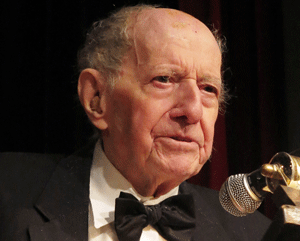BY JERRY TALLMER | Big, strong, soft-voiced Ed Fancher, sophisticated, small-town boy from Middletown, N.Y., rugged combat veteran of the 10th Mountain Division — Ed the stubborn bohemian who had reached Greenwich Village by way of Alaska — dreamed of The Voice being a tidy, little, local newspaper like those he’d grown up with back home, but a good one. (In reflection, all these years later, that’s what John Wilcock wanted too, but with hippy-pippy steroid bells on.)
Ed, by the way, like everybody else in this world, was a far more complex human being than appeared at first glance. I more than once heard him murmur: “The hell with all this. I wish I could get with Fidel Castro up in the Sierra Maestra.”
When Alger Hiss came out of jail and was starting a new life as a printing salesman, Ed helped him get on his feet. At the same time, Ed Fancher had a nose for where the money was buried that might keep The Voice alive for one more week, one more month — rich, potential would-be investors, who usually also wanted to write for us. That’s what brought us close to Whitey and Evie Lutz, the Eli Lily heiress, of whom more later.
Of Ed Fancher, football player, Norman Mailer used to say, mockingly but admiringly, “If you needed somebody to go straight through center, Fancher was your man.” Ed was also — until his lifelong marriage to Vivian — a formidable bedder of quite a few cooperative young women, one of them the fiery Adele Morales, who went from Ed to Norman Mailer.
I always knew whenever I came into the office and found all the desks and the mimeograph machine moved around, that Ed had been muscularly working off his fury and frustrations at keeping The Voice breathing for just one more daunting day.
Well, he came by it honestly; he was a furniture mover by profession, wasn’t he? But also — miracle of miracles — Ed Fancher even then was a trained, and licensed, and practicing psychotherapist. And still is, as I write these words six decades later.
Back then, Ed’s favorite amusement was to submit one and all to something called the Szondi Test, the brainchild of a certain Dr. Leopold Szondi of Budapest, Hungary. Ed would hand you two sheets of 48 mug shots of what appeared to be dreadful-looking, murderous male psychopaths, and ask you to pick out your favorite pair and least favorite pair.
I would never submit myself to that test — for fear, I suppose, of uncovering some murderous psychopath within myself.
Back to the four Voices:
Norman Mailer — oh, all that Norman wanted out of The Village Voice was for it to strip off, unpeel and remake the psyches of everybody born on earth, the hip as well as the square. This ambition was reinforced in those days by Norman’s discovery of and struggles with the illusory world of pot, of grass. Unfortunately, the grass all too often interfered with his writing.
And I? Well, if you had to define it, Jerry Tallmer just wanted to be able to write about — and have others write about — theater, movies, literature, painting, the arts, politics, life itself, in good, clear, deeply personal, non-mandarin English prose. You could say American English, but that isn’t what I mean either.


















